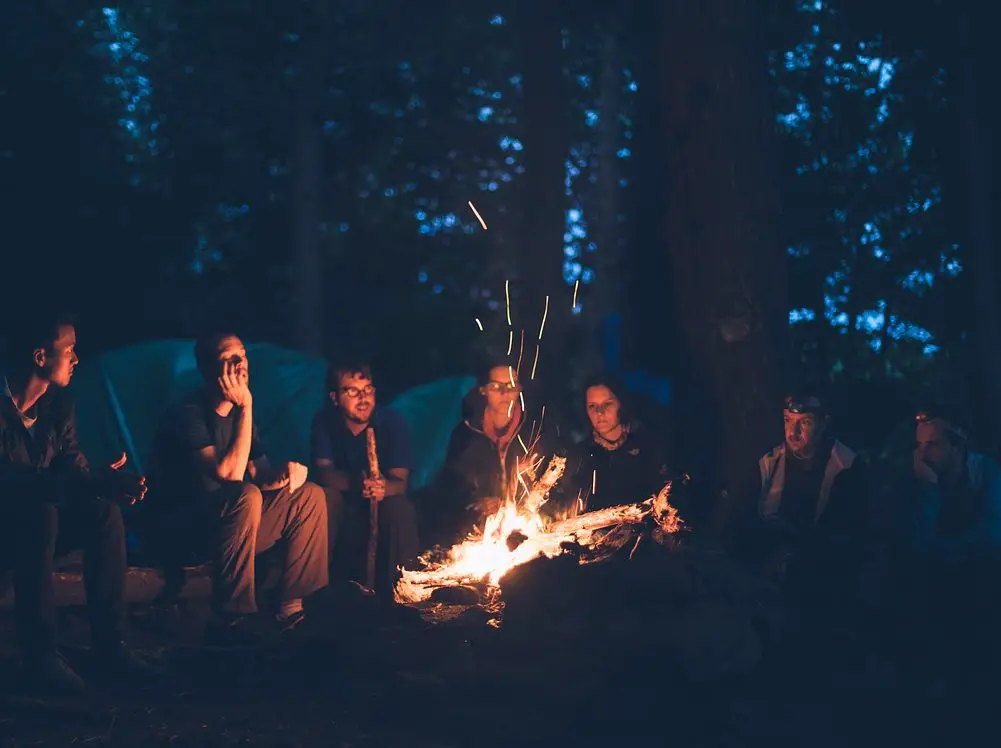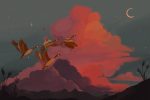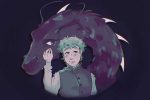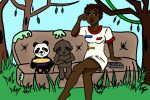One of my favorite things to do is read outside. Plan on going camping this summer? Make sure you bring a good book, and I’m not talking survival books about what plants are dangerous or anything like that. I mean a nice fiction book that you can immerse yourself in while you are in the wilderness. Depending on the book, I find that reading outside can actually help you feel more tied to the story than if you are reading in your home. Obviously, the best books to read outside are the ones that not only take place outside, but also richly describe the environment.
J.R.R. Tolkien in particular includes these aspects in his works. Is his writing style the easiest to read? No. Is the plot predictable? Yes. Is there much racial or gender diversity in his character work? No. But if you overlook these imperfections, his detailed emphasis on the environment of his adventure stories makes him a great author to read when you go camping.
One factor of Tolkien’s stories that makes them perfect for reading outdoors is the detailed landscape descriptions. During the 20th century, J.R.R. Tolkien wrote his iconic “Lord of The Rings” trilogy, as well as his standalone novel “The Hobbit.” While they were not the first fantasy stories to take place in a completely made-up world, they were the first to have such a richly described environment. These stories take place in the world of Middle-Earth, and the amount of detail put into it is amazing, considering that all of the maps, languages, species and landscapes are made up.
Tolkien’s backstory is important to understand the key elements of his work. He was a soldier during World War I and was traumatized by trench warfare, but he gained a new appreciation for preserving nature from the chaos of human conflict and interest. Tolkien depicted his love for nature through his rich descriptions. In “The Two Towers,” he describes the wilderness surrounding Sam and Frodo: “All about them were small woods of resinous trees, fir and cedar and cypress, and other kinds unknown in the shire, with wide glades among them; and everywhere there was a wealth of sweet-smelling herbs and shrubs.” In the midst of telling an epic tale about the forces of good and evil, Tolkien is still able to beautifully capture the essence of nature on a page.
When you are outside and reading his prose, you yourself can better taste the nature around you. You can feel the slight breeze on your skin combined with the dense humidity and the smell of various plants next to you. I get goosebumps just thinking about it.
The point of including such intimate descriptions of the environment is to make Middle-Earth seem more familiar. On top of the detailed scenery, Tolkien also goes the extra mile to describe the food the characters eat. One factor that makes Tolkien’s fantasy stories so unique is that it is very easy for readers to put themselves in the world, even though it is fantasy. Most of the descriptions of the landscape are based on England and Western Europe, and many of the meals that the characters eat are eaten in the real world too. These aspects contribute to a world that feels new for readers, but also familiar — like it comes from someplace not far away.
Adventure is another aspect of Tolkien’s works that makes him a great author to read while exploring the outdoors. Tolkien’s protagonists are always Hobbits — essentially smaller humans that live in an area that is comfortable, safe and cozy. The protagonists start out scared of what lies outside of their neighborhood, and they are dragged into an epic quest that takes them across Middle-Earth, where they meet many new characters and creatures.
The exposure to the outside world leads them toward newfound desires for adventure. Take the beginning of “The Hobbit” for example. The great wizard Gandalf leads a band of dwarves to the property of Bilbo Baggins to discuss the journey that lies ahead of them: traveling to the Misty Mountains to reclaim the gold from Smaug the Dragon. Tolkien does a great job of highlighting the complicated emotions that go into adventures. On one hand, Bilbo is scared of the danger that lies on the path of this journey, because he would have to leave his comfortable, predictable home. But on the other, there is something innately enticing about going on the adventure.
Bilbo Baggins is grateful when he wakes up to find that Gandalf and the dwarves have left, leaving Bilbo to enjoy his breakfast. However, “he could not help feeling just a trifle disappointed” about their departure without him. Gandalf ends up coercing Bilbo into going on the journey. Throughout the adventure, Bilbo develops a thrill of meeting new species and finding treasures. When Bilbo returns home, Gandalf says to him, “You are only quite a little fellow in a wide world after all,” to which Bilbo replies, “Thank goodness!” signifying a newfound love for adventure and discovery.
I think adventures are great camping reads because camping itself is an adventure. You leave your home for a period to explore an unknown, natural part of the world. You probably won’t come across any elves, dwarves or goblins like Bilbo does, but you may find other interesting structures, rocks or people.
Now if you are only going camping for a few days, I would suggest just bringing “The Hobbit” since it is much shorter than “The Lord of The Rings.” Nevertheless, both stories have adventure and vivid landscapes. Tolkien’s novels are so much more than just epic fantasy stories. They also contain commentary on the relationship between humanity and nature. There are countless analytical articles that make a strong case that the bad guys in the story represent the interests of mankind that have hindered the preservation of nature.
This idea was true when Tolkien wrote his novels during the aftermath of the Industrial Revolution, which turned many a countryside into urban centers, and it is true today in light of climate change that continues to desecrate the planet. In summary, Tolkien is one of the finest authors in recent history and is a great one to read while camping. His timeless stories are reminiscent of a simpler lifestyle, when humanity was more adventurous and eager to connect with nature.
















